Cause And Effect
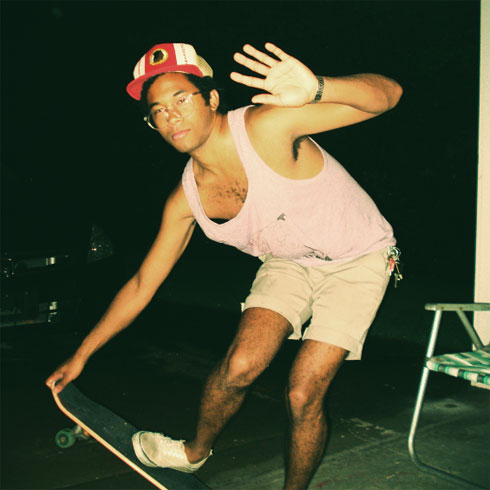
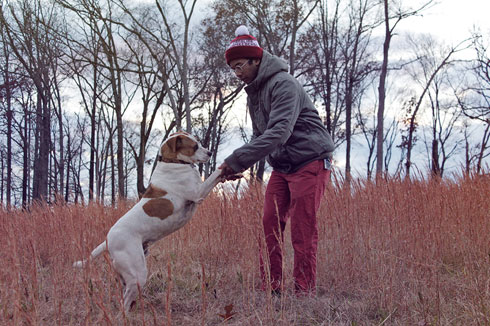
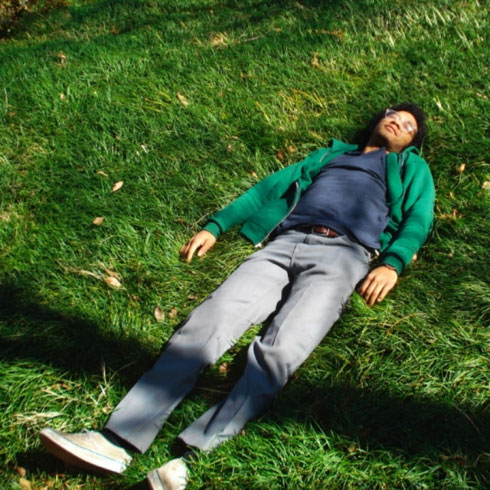
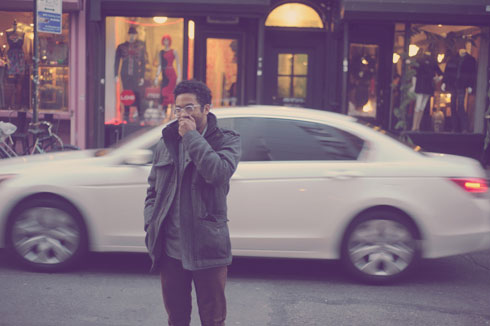
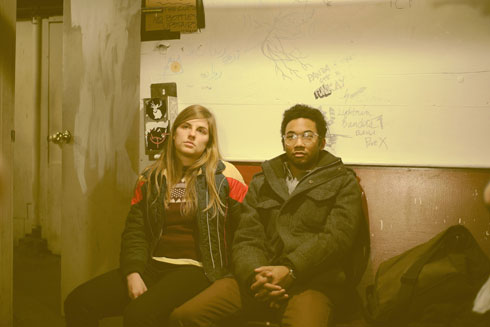
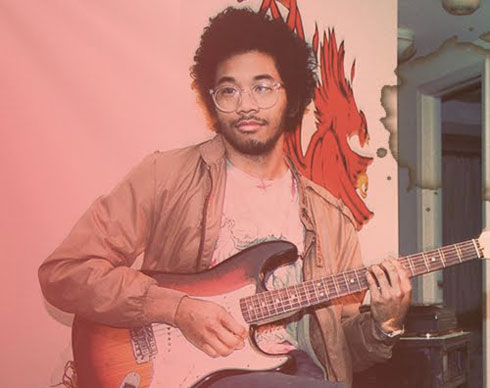

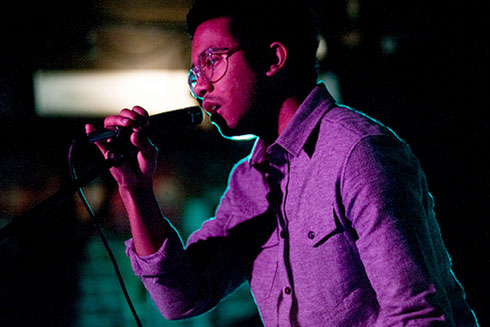
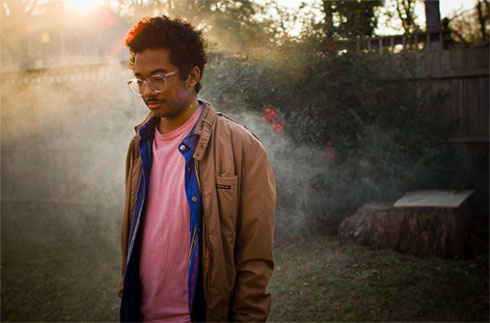 Text: Digby Woods Images: Toro Y Moi
Text: Digby Woods Images: Toro Y Moi
I know the term ‘Chillwave’, as a genre, has gone from buzzword to punch line, with equal measures of scorn being heaped upon what was once praise, but can we just stand back for a minute and appreciate the great music that has been attributed to this moniker? Case in point: Chazwick Bundick a.k.a. Toro Y Moi (pronounced Toro E Mwah).
Having signed with Carpark Records, who also represent Beach House, Cloud Nothings, Dan Deacon and the up-and-coming Young Magic, Toro Y Moi released his 2010 debut album, Causers of This, a funk-flavoured synth-pop gem in which each track flows so eloquently from one beat to the next it makes you wonder why more artists aren’t channelling Lonnie Liston Smith for inspiration.
Now, barely a year later, Toro is set to release his second full-length effort, Underneath the Pine; a record which promises to go beyond the velvety-smooth texture and synth-laden atmospherics that were so well-established on Causers, building upon the foundations of R&B, funk, soul, folk-pop and Italo-disco to create something of genuine maturity.
On the brink of his first Australian tour, I spoke to Chaz about the inspirations and direction for his new record, the difficulties of playing live, being mistaken for a DJ and, of all things, Dashboard Confessional.
Digby Woods: According to the internet, your new album, Underneath the Pine, has taken a departure away from the electro elements of your first album, Causers of This, and adopted more of a folk-funk sensibility. Was it always your intention to release a dedicated guitar-based record to contrast the electronica of the first, or is it merely a symptom of your changing musical interests?
Chazwick Bundick: Over the years I’ve moved more towards keyboards and the like, so there’s a ton of synth and piano stuff going on, and I felt like that was where my skills were going. In previous years I would always record a kind of folk/acoustic album and just give that to friends, and at the same time I was recording electronic stuff on the computer. It was just something I did to prevent myself from becoming bored.
DW: You recorded the single, ‘Leave Everywhere’, back in 2006, which has a stripped-back acoustic garage sound in contrast to your more recent work. Are you seeking to tap back into that same sound for Underneath the Pine?
CB: Somewhat, yeah. ‘Leave Everywhere’ was the first song in which I decided to embrace a certain time-period, so to speak. Before that, a lot of my songs were timeless, in the sense that they didn’t refer to or draw on any certain time period. But they were timeless in a bad way. They were kind of lost – just new, contemporary sounding songs, and that’s not what I’m interested in.
DW: So you wanted to base your music on specific influences?
CB: Right. Like I wanted to draw on more influence and more inspiration. For this album, I really took a look back at ’60s and ’70s funk and jazz, and soundtrack stuff. For Causers, it was more R&B funk stuff.
DW: Recording an acoustic-oriented album must’ve meant a shift in the approach toward production. How was Underneath the Pine different to Causers in terms of recording?
CB: Yeah, it was hard because when I was making Causers, I was so used to working with the computer and having that option to cut and paste. So with Underneath the Pine, I was stuck for a second trying to figure out how to get back into the flow of things. I kind of created a human sequencer in my brain and tried to keep all the parts I was going to use in that song and then just try to jam it out. If it was cool I would keep it or I would start over.
DW: To what extent were the lyrics in Causers improvised? Did you just create the beat and then let the words flow accordingly, or did you already have a rough sketch for each song?
CB: That’s something I really wanted to catch and I found that’s what I love the most about organic instruments is that you can’t program that, it’s like a stream of consciousness. So I tried to capture as much of that as possible, just because that’s what organic recording and traditional approach is all about, just capturing those awesome moments that can’t be reproduced. I felt like I wanted to incorporate jams, sort of like in the middle of ‘Still Sound’, just free-flow sections.
DW: Are there any other songs where this comes through strongly?
CB: Yeah, there’s another one called ‘Go With You’. It’s really awesome, it works out so well live. We just started playing with a guitar player last week, and at practice it seriously gave me goosebumps to hear all of this come together, so it’s really cool to hear the free-flow sections of this song take their natural shape.
DW: What about taking your sound to the stage, does that present any difficulties? Because you recently did a Daytrotter Session where you took a bunch of Causers songs and gave them an acoustic rework, and it sounded great – does this mean that you’ve had no problem taking your sound from the studio to the stage?
CB: That was one of the things I was thinking about when recording this album, was how it was going to work live, because the songs we did for Daytrotter are probably the best ones that translate live. They stand out. But the majority of Causers really didn’t work out too well live and when we’d get put into situations where we’d be playing at a festival or something in front of thousands of people who are just bored sitting there, and we’re just like, “Uhhh, we’re stuck, we have to play this, this is all we have.”
So when I was writing Causers I wasn’t really thinking about that stuff, I wasn’t thinking about the audience or the setting, I was just thinking let’s make a fun album, and I tried to do that with Underneath the Pine, but I also kept in mind that, now that I’ve become something of an established artist I have an opportunity to play these songs live and I want to give a better live show, but to do that you need songs that translate better when played live.
DW: It’s almost an obligation to think about that kind of ‘live’ factor when progressing as an artist.
CB: Yeah, it’s a hard move.
DW: So how did you overcome it when you first started touring for Causers?
CB: It was hard, because none of us were in electronic bands or anything. I didn’t want to use a laptop, in fact I tried to get rid of using one as soon as I could, just because it’s something I’m really not used to. I’m not good at using electronics on stage.
So for Causers we had to lose the whole theme that the album had – the bleeding of the songs and the compression, the whole washiness of it, we had to drop that because it doesn’t translate well live, especially with bass and drums and stuff.
So yeah, it was hard, but I think that’s what gives an album its own ‘thing,’ because when you go see a band live you don’t think want to hear an exact replica of what you hear through your headphones.
DW: You released two EPs, Sides of Chaz and My Touch, before your debut. Do you play any of the songs on those records during your live sets?
CB: No. I’m not sure if we’re going to learn any, but even if I were going to get into playing those live I wouldn’t know how to go about doing it because those songs are definitely sloppier. They’re just ideas. But it would be kind of fun to just do loud, messy versions of those songs, that’d be fun.
DW: What kind of influences were you channelling for those two EPs as opposed to your more recent offerings?
CB: More kind of ’70s artists. Like…have you heard of Lonnie Liston Smith? He’s sort of a jazz guy, it’s really good stuff. And then a friend recently told me about Carole King – I’d never really checked her out. So I was just trying to listen to production techniques and even song-writing techniques that a lot of people from the ’70s used because I just love the chord progressions, and just the way they use their instruments is so different from now.
You can listen to something, regardless of the production, and just tell from the song-writing, from the chords they’re using, that it’s kind of a ’70s-sounding song for some reason. Similar to showtunes almost, that same familiarity. It’s just a really nice, pleasant sound that’s going on there.
DW: You’ve been touring fairly consistently for the past year, both in the States and internationally. Was it easy for you adapting to that kind of lifestyle? Is it a breeze all the way through for you, or do you sometimes find yourself relating to Dante’s Inferno?
CB: (Laughs) It took me a while to get used to it, but I think I’m finally starting to enjoy it and take it for what it is, because before I started touring I wouldn’t have ever gone to Europe, just because I wasn’t prepared financially or mentally. But I wanted to go. And I got to go. So I think touring helped me to get over that fear of leaving home.
Not to sound like a hermit or anything, but I just kept thinking, “Oh there’s the language barrier” or “I don’t have money” or “I’m going to get robbed” or something. So touring helped me to become comfortable with travelling and now I’m more open to going places at the last minute or even just leaving home.
DW: It’s understandable, not wanting leave your comfort zone. I think the majority of people find it hard to break out of that mentality sometimes.
CB: Yeah, like when we went touring in Europe this past August, that was the first time I’d ever left the United States.
DW: You went all over the place for that tour – Milan, Brussels, Paris, Barcelona, Lisbon. Was there ever a language barrier problem when performing?
CB: No, not really. It was mostly when we went out into the cities themselves that we had trouble communicating, like we’d have trouble ordering at a restaurant and stuff like that.
DW: Are there any new bands that are getting high rotation on your speakers at the moment?
CB: Yeah, I really like that band Women, they’re awesome. I think they’re from Canada. Actually I think they broke up…I’m not sure. I read something on Pitchfork about them getting into a fight but they recently put out their second album (Public Strain) – it’s awesome! I’ve also been listening to this group Motor City Drum Ensemble. They’re pretty cool.
DW: Are there any bands you used to listen to that you look back on now with a cringe?
CB: (Laughs) Well I don’t have any regrets about Blink 182. They had some cool stuff, but I just grew out of that, it wasn’t really embarrassing. What was embarrassing was that I used to listen to Dashboard Confessional. I have their first album (laughs), that was pretty bad. Early 2000s was a big time for ’emo’.
DW: Yeah, I remember back around that time I was listening to Linkin Park. Urgh!
CB: (Laughs) Yeah, and Limp Bizkit, we were talking about that today at practice.
DW: (Laughs) Don’t remind me. Moving back to your own work though, I wanted to talk about Les Sins, your dancer alter-ego to Toro Y Moi. How did that side-project originate?
CB: I was just inspired to create another moniker, because after I did the My Touch EP under Toro Y Moi, I started to get a couple of invitations to play shows and people were calling me a DJ. One place even called me a vocal DJ, whatever that is, and I was just like, “I’m not a DJ, I write songs and stuff” (laughs).
So because they were billing Toro Y Moi as a DJ, I thought it would be appropriate to actually come up with a DJ/strictly dance-music persona, which then became a home for all of my dance-inspired stuff.
DW: Do you see a long-term future for it?
CB: Hopefully! I could see myself putting out another single, and I’d be totally fine with that if it was kind of just a singles-only project.
DW: Speaking of remixes, what is your stance on remixing?
CB: Remixing’s fun! You get to be the songwriter on somebody else’s song. Although I can see how it can become overwhelming and maybe that’s why a lot of people turn it down, and also you don’t want to oversaturate the market with a bunch of remixes.
DW: Like what happened with Phoenix’s latest album?
CB: (Laughs) Yeah, that was just ridiculous.
DW: Are you selective about what songs you allow to be remixed by other artists?
CB: Yeah. For the first time we’re putting up the stems for ‘Still Sound’ on SoundCloud and I was really sceptical at first, because I don’t want that to get super-annoying to people. But you have to go with the flow sometimes when you’re working with other people. So we’re giving it a shot, see how it turns out.
(Laughs) I’m not as big as Phoenix though, so I assume it’s not going to get as crazy and overwhelming. I mean, Caribou did a remix competition that was barely publicised and it still got a lot of really cool responses, so hopefully that’ll be a cool thing to happen in this case.
DW: No doubt! Cheers for talking with me Chaz. See you in February.
CB: That’s cool man, see you then.
Toro Y Moi plays Playground Weekender at Wisemans Ferry, February 17-20
Next story: International Relations – Bababa International



